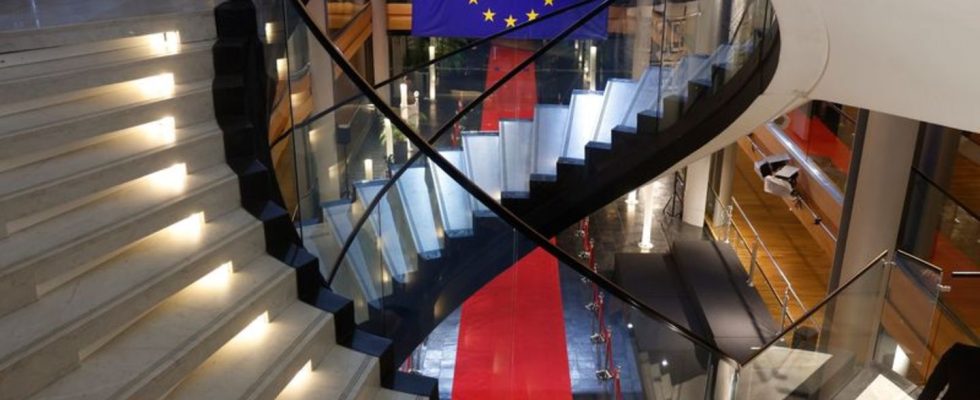EU Court of Auditors
Lobbyists can circumvent transparency rules in the EU
“The exchange between lobbyists and EU legislators often takes place far away from public perception.” photo
© Jean-Francois Badias/AP/dpa
Companies or associations can often influence legislation in Brussels without being noticed, criticizes the EU Court of Auditors. Citizens only have very limited insight.
A good year after the corruption scandal in the European Parliament EU Court of Auditors at the EU institutions deficiencies in dealing with lobbyists.
Interest groups can still influence EU lawmakers unnoticed by the public, as the Court of Auditors said. In this way, lobbyists could completely circumvent some of the transparency requirements for certain forms of influence. Lobbying is important because it allows organizations and individuals to contribute to policy-making and decision-making. “However, lobbying without transparency mechanisms can lead to undue influence, unfair competition or even corruption,” warned the auditors.
Exchange often far from public perception
“Often the exchanges between lobbyists and EU legislators take place far from public view, which harms transparency and has a negative impact on public trust,” said Kristijan Petrovic, the member of the Court of Auditors responsible for the audit.
Registration in the EU Transparency Register is only mandatory for certain meetings and activities. A non-governmental organization involved in the so-called Qatargate scandal was involved in a conference in parliament in June 2022, although it was not entered in the register. Since the transparency register was set up, the number of registered lobbyists has increased from around 5,500 in 2012 to around 12,500 now. However, it is not legally binding to enter in the register.
Qatar scandal shocked European Parliament
In December 2022, the Qatar scandal shook the European Parliament. The Belgian justice system is investigating the now deposed Vice President Eva Kaili and other suspects for involvement in a criminal organization, money laundering and corruption. This is about suspected influence on political decisions from abroad.
The Court of Auditors also criticizes the fact that lobbyists only have to register for meetings with the highest-ranking employees of the EU institutions. “Spontaneous meetings and telephone conversations as well as email correspondence do not need to be formally recorded, and lobbyists do not need to be registered for meetings with employees below the level of a general director (i.e. with almost all employees),” said the auditors.

